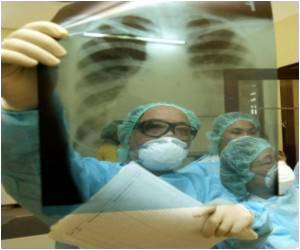
Five-year survival rates for men and for women are also lower in Aneurin Bevan Health Board, which includes the deprived areas of Blaenau Gwent, Torfaen and Newport, than elsewhere in Wales.
The data, published in a series of maps, also reveals a north-south divide in cases of lung cancer – the deadly disease is the second most common form of cancer for men and women living in South Wales but the third most common for people in Mid, West and North Wales.
Neighbouring Cardiff and Vale University Health Board has some of the highest one and five-year cancer survival rates for men and women in Wales, Madeleine Brindley wrote in Western Mail.
Dr John Steward, director of WCISU, said that a number of factors might account for the variation in survival rates, including the general health and nutrition of the population; awareness of cancer symptoms and access to and the response of local GPs; access to hospital and specialist care and screening for cancer.
All of these may be determined by underlying deprivation and previous research has suggested deprivation is a major contributing factor to cancer.
Advertisement
“This makes it unlikely that there is one common factor causing this variation.
Advertisement
“This variation in incidence and survival may well result from the fact that Aneurin Bevan Health Board covers some of the areas of the UK that have the highest rates of social deprivation.”
Dr Ian Lewis, head of research at Welsh cancer charity Tenovus, said: “In Wales, as in many countries, the poorer you are the more likely you are to develop cancer.
“In men, you are around 21% more likely to get cancer if you live in a poor area compared to the most affluent. If you are a woman you are 14% more likely.
“Even more shocking, though, is the fact that you are not only more likely to develop cancer if you live in a deprived area, but you are also more likely to die from it than the most affluent in society,” he added.
“This is most starkly seen in lung cancer where you are around two-and-a-half times more likely to die from lung cancer if you are poor than if you are wealthy.
“To a large degree these disparities are caused by the greater numbers of people who smoke in areas of deprivation, since smoking causes more than 90% of all lung cancers and around 35% of all cancers overall.
“We need to do more to engage with people who live in deprived areas and work with them to develop realistic and effective healthy living programmes.
“There are many organisations across Wales that are working hard to do this, but investment needs to be made available to ensure that the programmes that work are supported long term and translated into all areas of Wales,” he added.
Despite the variation in survival rates across Wales, other figures published by WCISU show more people are surviving a cancer diagnosis.
Just under a third of men – 31.5% – were still alive five years after being diagnosed with cancer (all cancers, apart from non-melanoma skin cancer) between 1985 and 1989. But this had risen to 46.9% between 2000 and 2004.
And for women, five-year survival rose from 42.8% to 52.1% in the same period.
Source-Medindia











